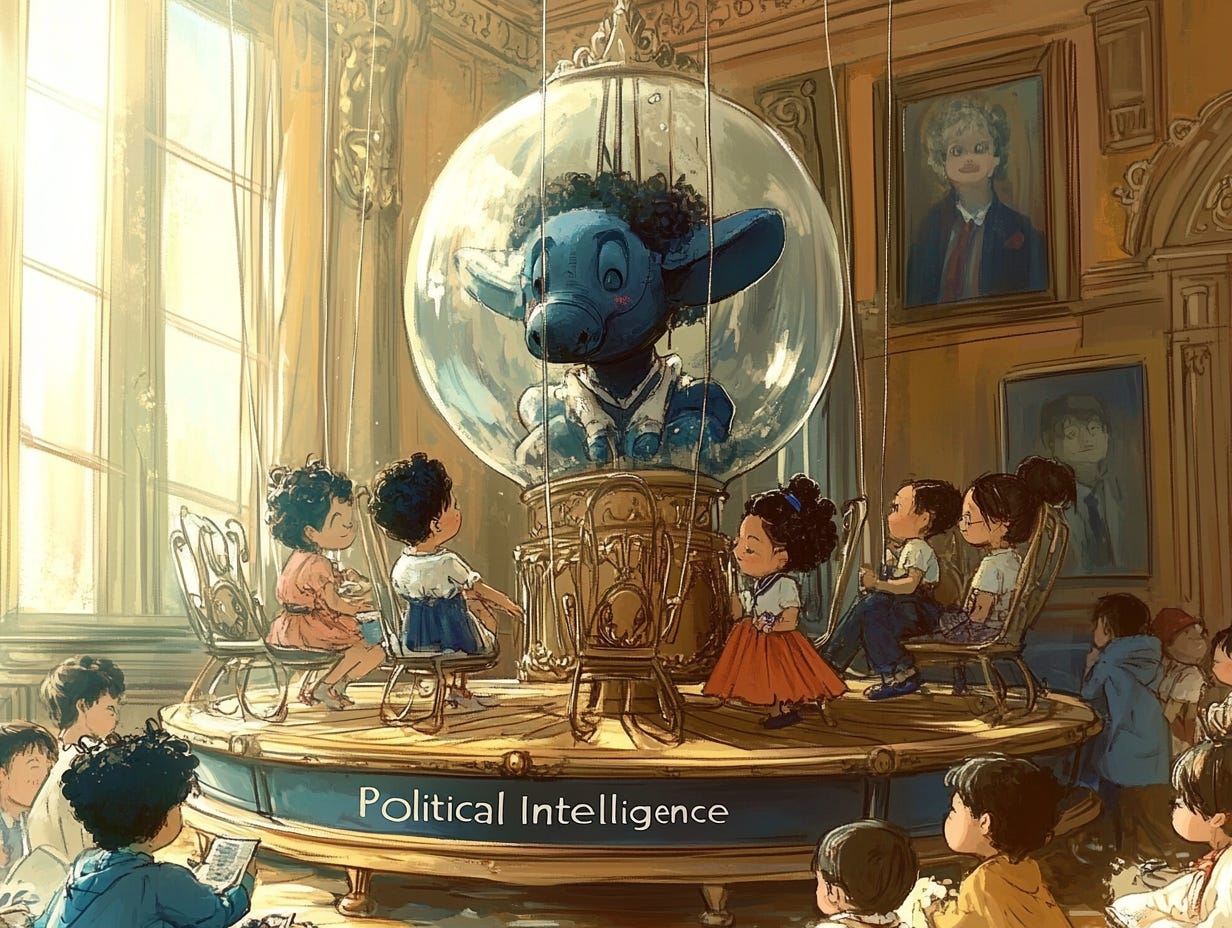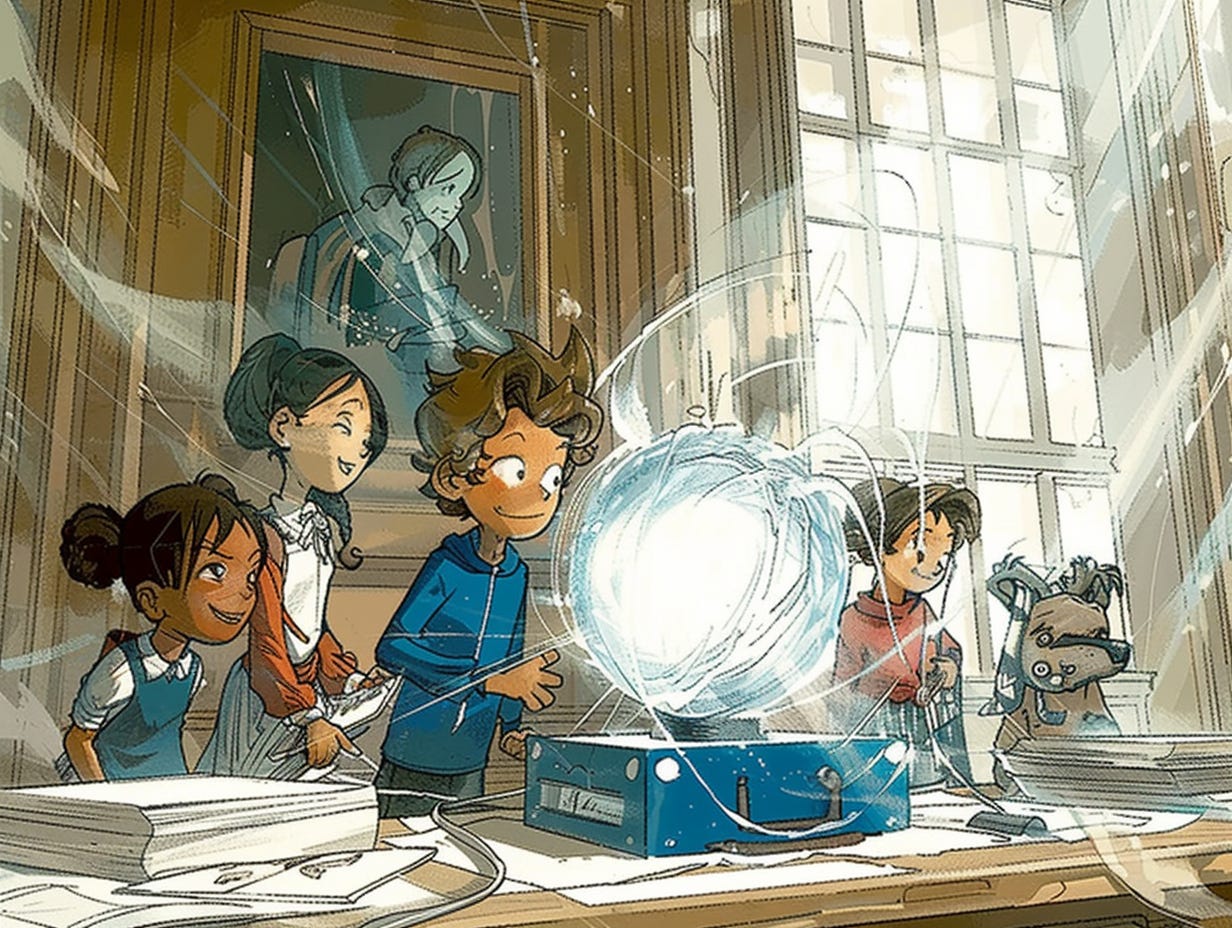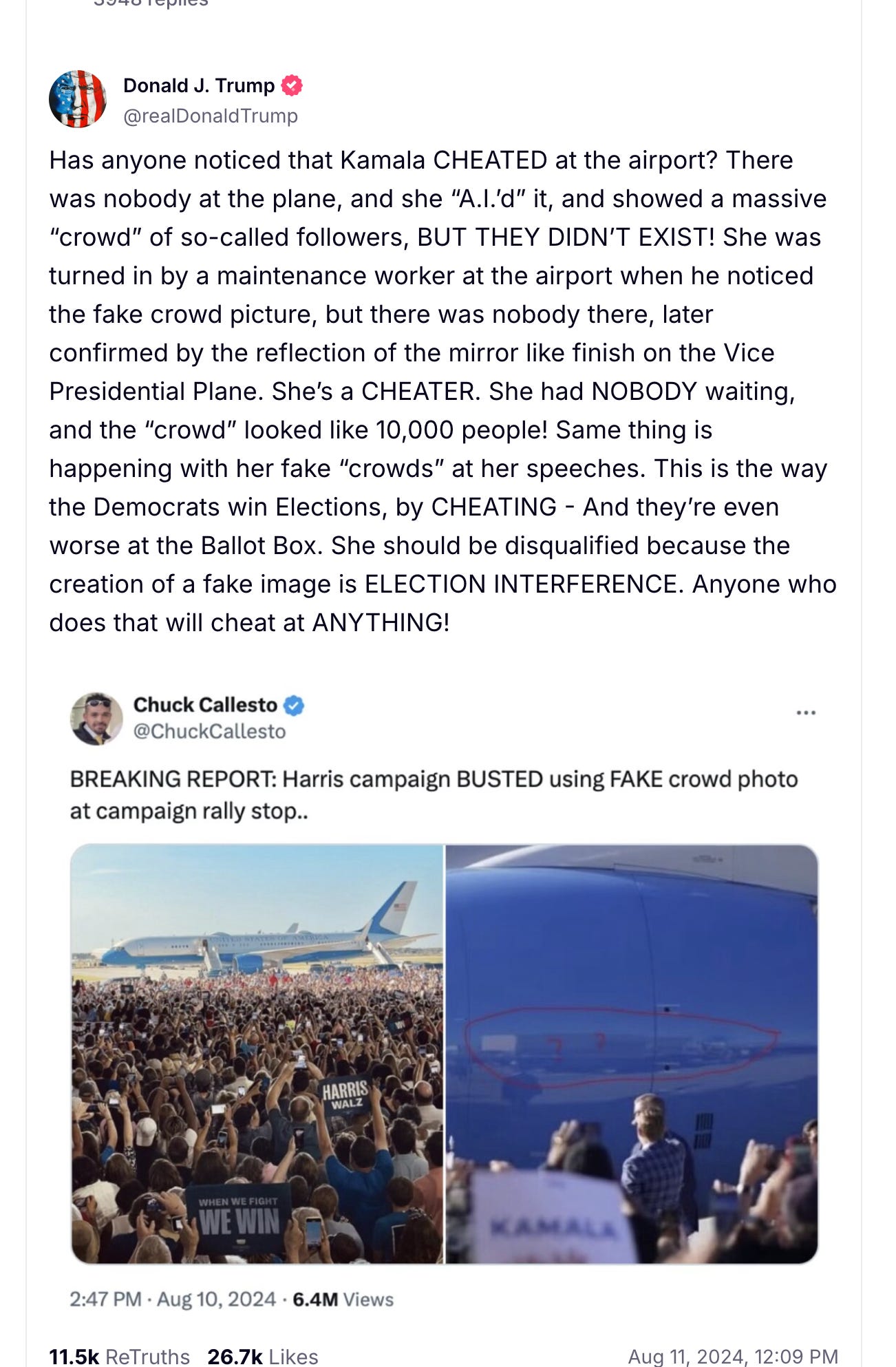I have been AWOL, but not because I have stopped thinking about being human in the age of AI. In fact, my interest in AI is both broadening and deepening, and my book project with Richard is coming along. With those developments in mind. I want to take my thinking on AI into new territory. The starting point for this new phase of exploration is a set of three interlinked realizations from the last eight months of writing:
Technics is bigger than technology. Technology is only one aspect of artificiality.
If machines are artificial (duh!), so is humanity. We have always been artificial. And therefore:
The term ‘Artificial Intelligence’ can be applied to human systems with the same felicity with which it can be applied to mechanical systems.
Others have said (and I have duly parroted) that bureaucracies and corporations are forms of artificial intelligence, and so is market behavior. If we call the first two ‘administrative intelligence’ and the third ‘economic intelligence,’ there are many reasons why administrative and economic reasoning have artificial flavoring - I will talk about that another time. But today, I want to introduce a third form of modern intelligence that hasn’t been mentioned by anyone as being artificial in its essence, but to my mind is very much so: political intelligence.
Mass politics demands we reduce living, breathing individuals to demographic features - race, gender, geography, ethnicity etc. While it gives a taste of political agency to everyone who votes, inequality in agency is far greater than it is in the economic sphere - the vast majority of citizens exercise choice and/or agency once every few years, while those in power are exercising it all the time. But, like in everything else, the perception of agency has changed with the 24/7 political cycle. As anyone who spends time on social media knows, politics pervades everything nowadays. Even conversations at the dinner table are political - and I don’t mean it in a deep ‘to be human is to be political’ kind of way, but as in people’s consciously held political identities dictate a lot of other choices. Inequality is a problem in politics as much as in economics, but there’s also the converse question: do we want a world in which all of us exercising agency all the time?
The more politics intrudes into our lives, the more political data we generate, and that’s as valuable to our political overlords as economic data is to our business overlords. Predicting voter behavior is to a politician that predicting consumer behavior is to a business. Both are fodder for their respective types of artificial intelligence. However, there are two major differences between viewing administrative and economic intelligence as artificial intelligence and viewing political intelligence as artificial intelligence:
There’s a difference in how the data is crunched and reflected back to us. In administrative and economic situations, the artificial intelligence comes back to decision makers in the form summary statistics - stock indices, census figures and so on. We don’t know the people who create those statistics - from CEOs to department secretaries, the human is deliberately erased from the patterns of intelligent behavior. That’s why they are impersonal and quite obviously machine like. When it comes to political intelligence, people’s beliefs and desires are reflected back to them not by.a machine, but by other people, i.e., politicians. It’s the opposite of impersonal - the whole point is to have a human being represent your needs and to be your agent in the system.
There’s no pricing mechanism. Economic behavior leads to instant feedback - if I change the price of tomatoes you can make an immediate decision on how much you want to buy right now, while there’s nothing like that when it comes to politics. You don’t like my policies - you can only vote me out four years from now. This makes the human avatar of the computer, i.e., the politician, even more important, for that’s the only constant even as policies and decisions come and go.
Political intelligence is as artificial as economic and administrative intelligence, and politicians are no less artifacts than server farms.
In political intelligence, the human is the computer. And just as OpenAI and Anthropic and Google and other AI companies have trained their algorithms on reams and reams of data shared by all of us, politicians are also trained extractors of collective experience, and of course, nowadays their political savvy is combined with survey data and focus groups and targeted messaging, i.e., all the tools that the other types of AI also deploy.
Why am I saying all this?
Because I was thinking of a way to write about the political drama that’s playing out on screens all around me - I am talking about the US election, now pitting Kamala Harris against Donald Trump. AI has already made a public entrance in this election, with Trump claiming that Harris’ crowds in Michigan were AI generated. Trump is known to be touchy about the size of his crowds and other body parts that shall remain unnamed.
Don’t worry, it’s fake news. The crowd was real. We are all waiting for fake things to be passed off as real, but the Trump campaign’s accusation shows the opposite is also going to happen: people lying by claiming what’s real was an AI generated fake. Anyway…. I didn’t want to write about who is winning or what their strategy should be or any number of other things that I will leave to more knowledgeable talking heads. Instead, I want to write about the election as technics, one where political intelligence is being channeled by two competing parties and funneled through two mouthpieces. It’s the party machine that concerns me.
The interesting thing about politics as AI is that the electoral process naturally co-opts developments in the ‘body politic,’ like the ongoing and widening divergence between the genders across the world. As a result, new political populations are constantly being formed around the various gender fault lines, from transgender access to restrooms to the voting rights of cat ladies.
Claim: the formation of these political categories is an act of artificial intelligence.
Over the next few months, at least from now until November 5th (or later; can’t imagine an election with Trump as the candidate will end without ongoing controversy), I will write about the campaigns, the issues, the special interest groups etc as if I am reporting on a massive AI. Don’t know if this investigation will yield substantive insights, but at least I will have fun writing it.
Since this is a fast moving theater, expect shorter updates twice a week or more.









This got me thinking about how AI could influence the formation of political populations – more insular political "bubbles" and the further entrenchment of polarized viewpoints.
Also, sophisticated AI models could potentially identify specific demographic or psychographic segments that are most receptive to particular political narratives and agendas (anyway, politicians are doing that already in one way or the other).
I also wonder whether the cognitive processes involved in developing, maintaining, and revising political beliefs, attitudes, and ideologies can be considered Bayesian in nature.